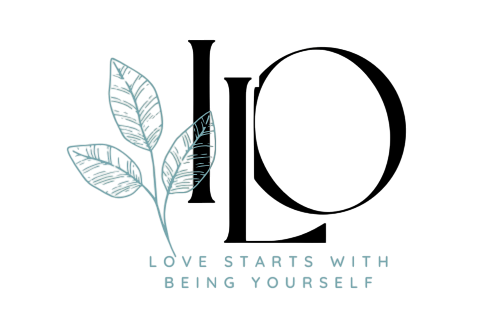3 Profound Ways “Quiet” changed my beliefs on the power of an Introvert
The power of an introvert: How one book changed my perspective
Have you ever felt like your quiet nature was a flaw in a world that prizes constant chatter? For most of my life, I wandered through crowded rooms, feeling like a silent observer at a party where everyone else had the script. I valued listening, savored solitude, and found comfort in loneliness when it meant I could recharge my creative batteries. My strengths as a reserved individual-deep thinking, creative problem-solving, and emotional independence-often felt invisible in a society that celebrates the loudest voice.
Yet, for years, I struggled with a nagging sense that something was wrong with me. Why did I need so much alone time? Why did group brainstorming sessions leave me drained instead of energized? This inner conflict became a real obstacle, making me doubt my own hidden potential and the unique advantages that come with a quiet personality. That’s when I stumbled upon Susan Cain’s Quiet: The Power of Introverts in a World That Can’t Stop Talking, a book that didn’t just answer my questions but transformed my self-perception…
- The power of an introvert: How one book changed my perspective
- What awaits you in this book
- Living quiet in a loud world: The struggles of an introvert
- What "Quiet" taught me about listening, solitude, and creative power
- Susan Cain gave me words for what I felt all along
- Why every introvert should read “Quiet”
- FAQ: Answers to your questions
Susan Cain in her own words: Video interview & key takeaways
In her interviews, Susan Cain radiates a calm authority that immediately resonated with me. The key points that struck me most were:
- The quiet personality isn’t about shyness, but about how we process stimulation and energy.
- Listening is a superpower, not a weakness.
- Our solitude and preference for deep work are essential for creative thinkers.
- The world needs both reserved and outgoing personalities for true balance.
Cain’s words felt like a gentle permission slip to embrace my natural tendencies, rather than fight them.
What awaits you in this book
“There’s zero correlation between being the best talker and having the best ideas.”
This line alone made me pause and reflect on how often introvert extrovert dynamics are misunderstood in professional and personal relationships.
Reader voices: What others say
- “A rich, intelligent book . . . enlightening.”—The Wall Street Journal
- “A smart, lively book about the value of silence and solitude that makes you want to shout from the rooftops. Quiet is an engaging and insightful look into the hearts and minds of those who change the world instead of tweeting about it.”—Daniel Gilbert, professor of psychology, Harvard University, author of Stumbling on Happiness
- “As an introvert often called upon to behave like an extrovert, I found the information in this book revealing and helpful. Drawing on neuroscientific research and many case reports, Susan Cain explains the advantages and potentials of introversion and of being quiet in a noisy world.”—Andrew Weil, author of Healthy Aging and Spontaneous Happiness
Book snapshot: Quick facts & mini-bio of Susan Cain
- Title: Quiet: The Power of Introverts in a World That Can’t Stop Talking
- Author: Susan Cain
- Genre: Personal development, psychology, self-help
- Pages: 333
- Publication date: January 24, 2012
- Amazon/Goodreads rating: 4.07/5
- Subject: The book explores the power of an introvert, the science behind personality, and how reserved individuals can thrive in a noisy world.
About Susan Cain:
Susan Cain is an American writer, former lawyer, and negotiations consultant. She’s a Princeton and Harvard Law School graduate, and a self-described introvert who spent seven years researching and writing Quiet. Her TED Talk on the subject has been viewed millions of times, and she’s become a leading voice for the value of quiet personalities in modern society.
My personal summary: What “Quiet” taught me
Reading Quiet was like finding a map to a territory I’d been lost in for years. The book is structured into four parts, each tackling a different aspect of the power of an introvert:
- The rise of the extrovert ideal and how it shapes our culture
- The biological and psychological roots of introversion
- The way different cultures view quiet personalities
- Practical advice for thriving in love, work, and family life as a reserved individual
What touched me most was Cain’s message that being a creative thinker who values listening and solitude is not just okay-it’s a personal advantage. The book gave me practical tools to ask for what I need, set boundaries, and recognize my unique contribution to the world.
Living quiet in a loud world: The struggles of an introvert
Growing up, I constantly felt out of sync with the world around me. Social gatherings left me drained, and I often wondered why I couldn’t enjoy the noise and excitement like everyone else. The pressure to fit the extrovert ideal was overwhelming. I remember sitting in meetings, my mind buzzing with ideas, yet I hesitated to speak up, fearing my quiet voice would be drowned out.
This sense of not “fitting the mold” led to misunderstandings and even self-doubt. I questioned my worth, thinking that my preference for solitude and deep thinking was a flaw rather than a strength. The need for validation became a constant companion, making me wish I could simply be someone else.
Discovering Quiet was a turning point. Susan Cain’s insights helped me see that my reserved nature was not only normal but valuable. She explains how introvert extrovert dynamics shape our workplaces and relationships, and how silence in love can actually be a sign of deep connection rather than distance. By embracing my inner world, I learned to appreciate my unique perspective and to advocate for my needs without guilt.
Try this: Next time you feel out of place in a noisy setting, remember that your quiet presence is not a weakness. It’s a different kind of strength. Observe, listen, and trust that your insights matter.
What “Quiet” taught me about listening, solitude, and creative power
One of my biggest revelations from the book was the idea that listening is a superpower. In a world obsessed with talking, those who truly hear others hold a rare advantage. I realized that my ability to pick up on subtle cues, to notice what isn’t said, and to reflect deeply before responding allows me to navigate complicated relationships with empathy and insight.
Cain also highlights the importance of solitude for creative thinkers. Some of my best ideas have come during long walks alone or quiet evenings with a notebook. The book reassured me that innovation often springs from moments of stillness, not groupthink. In fact, Cain argues that the “new groupthink” can actually stifle creativity, and that working alone can be just as, if not more, productive.
Her practical advice-like seeking out quiet spaces at work, scheduling downtime, and communicating your needs to loved ones-has helped me thrive without pretending to be someone I’m not.
Try this: Carve out regular time for solitude and see how your creativity blossoms. Don’t be afraid to ask for quiet when you need it.
Susan Cain gave me words for what I felt all along
Before reading Quiet, I struggled to articulate why I felt so exhausted after social events or why I cherished alone time. Cain’s words gave voice to feelings I’d buried for years. She writes, “If there is only one thing you take away from this book, I hope it’s a newfound sense of entitlement to be yourself.” That line was like a breath of fresh air.
For the first time, I felt seen and understood. Cain’s stories of other reserved individuals-scientists, artists, leaders-showed me that I wasn’t alone. Her research into the biology of introversion and the myth of the charismatic leader made me realize that my strengths were not only valid, but essential to the world.
Cain became a “voice” for those who often go unheard. Her compassionate, well-researched approach helped me accept myself and even take pride in my quiet nature.
Try this: Reflect on moments when you felt misunderstood. What words would have helped you? Sometimes, naming our experience is the first step to embracing it.
Why every introvert should read “Quiet”
If you’ve ever felt like you had to change to fit in, this book is for you. Susan Cain’s message is clear: You are not alone, and you don’t have to change who you are to succeed. The power of an introvert lies in embracing your natural strengths-listening, deep thinking, and creative problem-solving.
Reading Quiet gave me the confidence to set boundaries, to communicate my needs, and to seek out environments where I could thrive. It also helped me understand how introvert extrovert relationships can be sources of growth and balance, rather than conflict.
If you’re comparing books on this topic, I can honestly say that Quiet stands out for its blend of science, storytelling, and practical advice. It’s not just a book-it’s a toolkit for living authentically in a noisy world.
Try this: Pick up Quiet and read just one chapter. Notice how your perspective shifts, even slightly. Sometimes, all it takes is one new idea to change everything.
If you recognize yourself in these words, if you’re looking to better understand your power as an introvert, I have two proposals for you:
–> Follow me to be the first to explore my genuine insights and personal experiences on introversion, with a special focus on the love lives of introverts.
–> Do you enjoy reading? Are you looking for more valuable insights and advice especially on how introverts find love? If so, you’ll love my book recommendation: “Introverts in Love” by Sophia Dembling. This book is read and approved by hundreds of introverts just like you :).
FAQ: Answers to your questions
What power do introverts have?
From my experience and what I learned in Quiet, reserved individuals possess a unique ability to observe, reflect, and listen deeply. This gives them an edge in understanding complex situations, building trust, and offering thoughtful solutions. The power of an introvert is often subtle but incredibly impactful, especially in environments that value strategic thinking and empathy.
Why is being an introvert a superpower?
Being a quiet personality is a superpower because it allows you to see what others miss. We excel at reading between the lines, noticing details, and connecting ideas in creative ways. Our capacity for solitude fuels innovation, and our preference for listening means we build strong, meaningful relationships. As Susan Cain shows, these are not just personal advantages-they’re essential for a balanced world.
Are introverts mentally healthy?
Absolutely. In fact, understanding and embracing your quiet nature is key to mental well-being. For years, I felt anxious trying to live up to extroverted expectations. Once I accepted my need for downtime and stopped apologizing for it, my stress levels dropped and my confidence grew. The book reassures readers that introverts red flags are not signs of weakness, but reminders to honor our boundaries.
Why are introverts strong?
Our strength lies in our resilience, self-awareness, and ability to thrive in solitude. We’re less swayed by groupthink and more likely to stick to our values, even when it’s unpopular. The power of an introvert is quiet but unwavering. We bring balance to teams, offer fresh perspectives, and often lead with integrity and compassion.
What is the secret power of an introvert?
For me, the secret lies in our capacity for deep connection-both with ourselves and others. We’re able to find meaning in loneliness, turn silence into insight, and transform complicated relationships into opportunities for growth. Our ability to recharge in quiet moments is not a flaw, but a hidden potential that fuels everything we do.
Embrace your introversion, it’s your superpower ❤️,
Thank you for reading.






